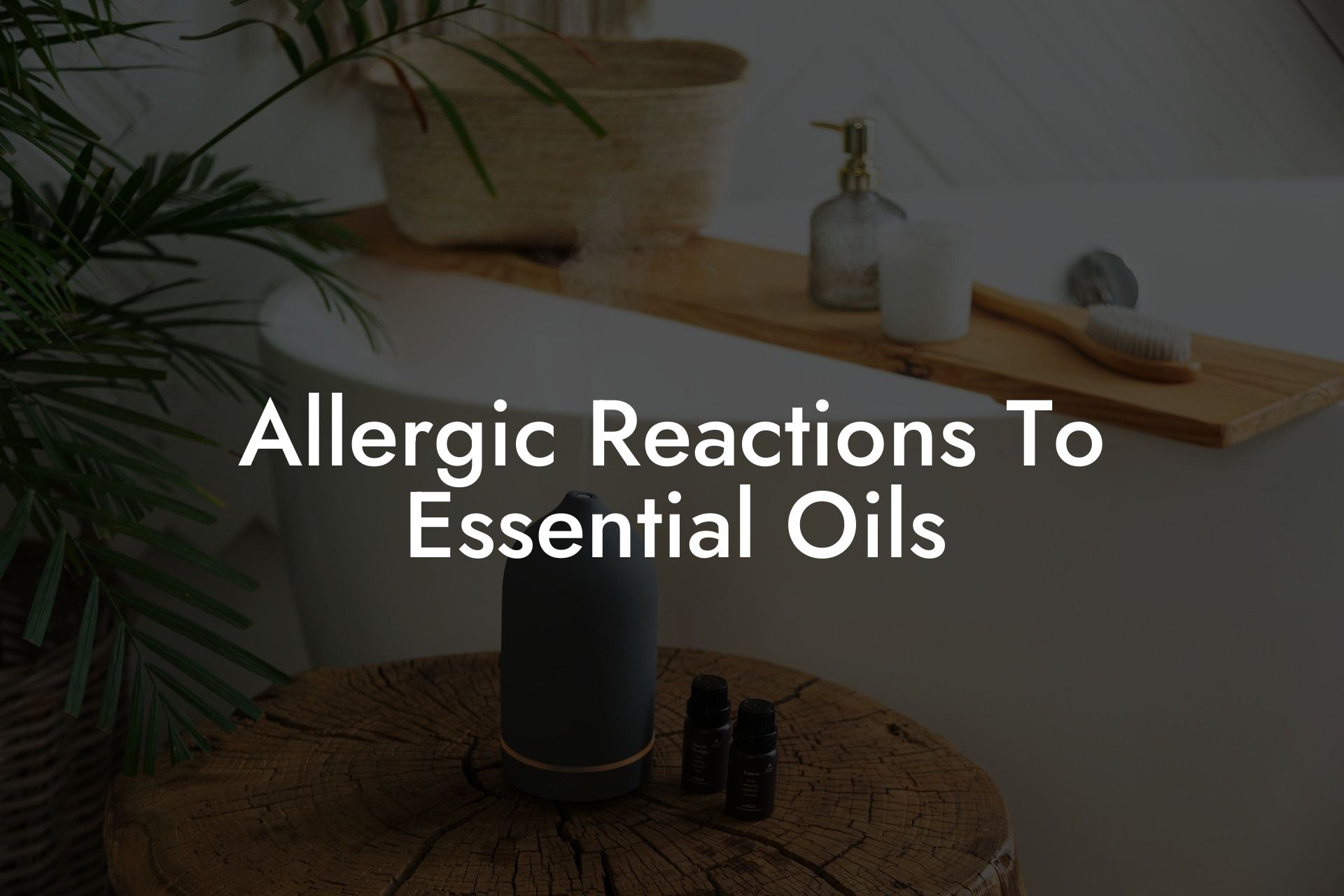Are you experiencing skin irritation, rashes, or other allergic reactions from using essential oils? You’re not alone! Though essential oils are an all-natural way to boost your wellbeing, they can sometimes cause allergic reactions in certain individuals. In this informative blog post, we will dive deep into the world of essential oil allergies, discussing common triggers and how you can mitigate their impact on your health. Discover how to stay protected and ensure your aromatherapy journey remains a pleasant one with Oshu Oils!
Table of Contents
Understanding Essential Oil Allergies
To use essential oils safely, it’s essential to understand why allergic reactions can occur. Firstly, it’s crucial to note that essential oils are highly concentrated plant extracts, so some users may be more sensitive to their potency. Common allergens found in essential oils include:
- Limonene, found in citrus oils such as lemon and bergamot
- Linalool, commonly present in lavender, mint, and rose oils
- Eugenol, which is a key ingredient of clove and cinnamon essential oils
Symptoms of Allergic Reactions
Allergic reactions to essential oils can range from mild irritations to severe conditions, depending on the individual’s sensitivity. Some common symptoms include:
- Itchy skin, rashes, and redness
- Difficulty breathing or wheezing
- Headaches or migraines
- Nausea, vomiting, or diarrhea
If you experience any of these symptoms after using essential oils, consider consulting a healthcare professional for advice.
Preventing Allergic Reactions
Patch Testing
Before using a new essential oil, perform a patch test. Apply a small diluted amount of the oil on the skin’s inner forearm and wait for 24 hours. If any adverse reactions occur, discontinue its use and consider exploring alternative oils.
Diluting Essential Oils
Always dilute essential oils before applying them to the skin. Pure, undiluted oils can cause skin irritation and even chemical burns in some cases. A good rule of thumb is to use one drop of essential oil per teaspoon of carrier oil, such as olive, coconut, or almond oil.
Choose Quality Products
Opt for high-quality essential oils from reputable manufacturers like Oshu Oils. Quality and purity can significantly influence the risk of allergic reactions, as lesser-quality oils may be adulterated or impure.
Consult a Professional
Before incorporating essential oils into your wellness routine, it’s a good idea to consult a healthcare professional or aromatherapist. They can guide you on the safe usage of these potent botanicals and help identify any potential allergens.
Allergic Reactions To Essential Oils Example:
Imagine a person who begins using lemon essential oil for its uplifting benefits. After a few days, they notice an itchy rash on their skin where the oil was applied. This individual might be experiencing an allergic reaction to limonene in the lemon essential oil. To solve this issue, they can:
1. Discontinue the use of lemon essential oil.
2. Consult a healthcare professional for guidance on managing their allergic reaction.
3. Research alternative essential oils with uplifting properties that don’t contain limonene, such as geranium or grapefruit oil.
In conclusion, while essential oils provide numerous health benefits, they can occasionally cause allergic reactions for some individuals. By following the preventative measures outlined in this guide, you can ensure a more enjoyable aromatherapy experience. If you found this article helpful, please feel free to share it with your friends and assist them on their essential oil journey. Be sure to explore other informative guides on the Oshu Oils blog, and don’t forget to check out our range of artisan essential oils to enhance your wellbeing. Stay informed, stay healthy, and infuse your life with the power of nature!





















